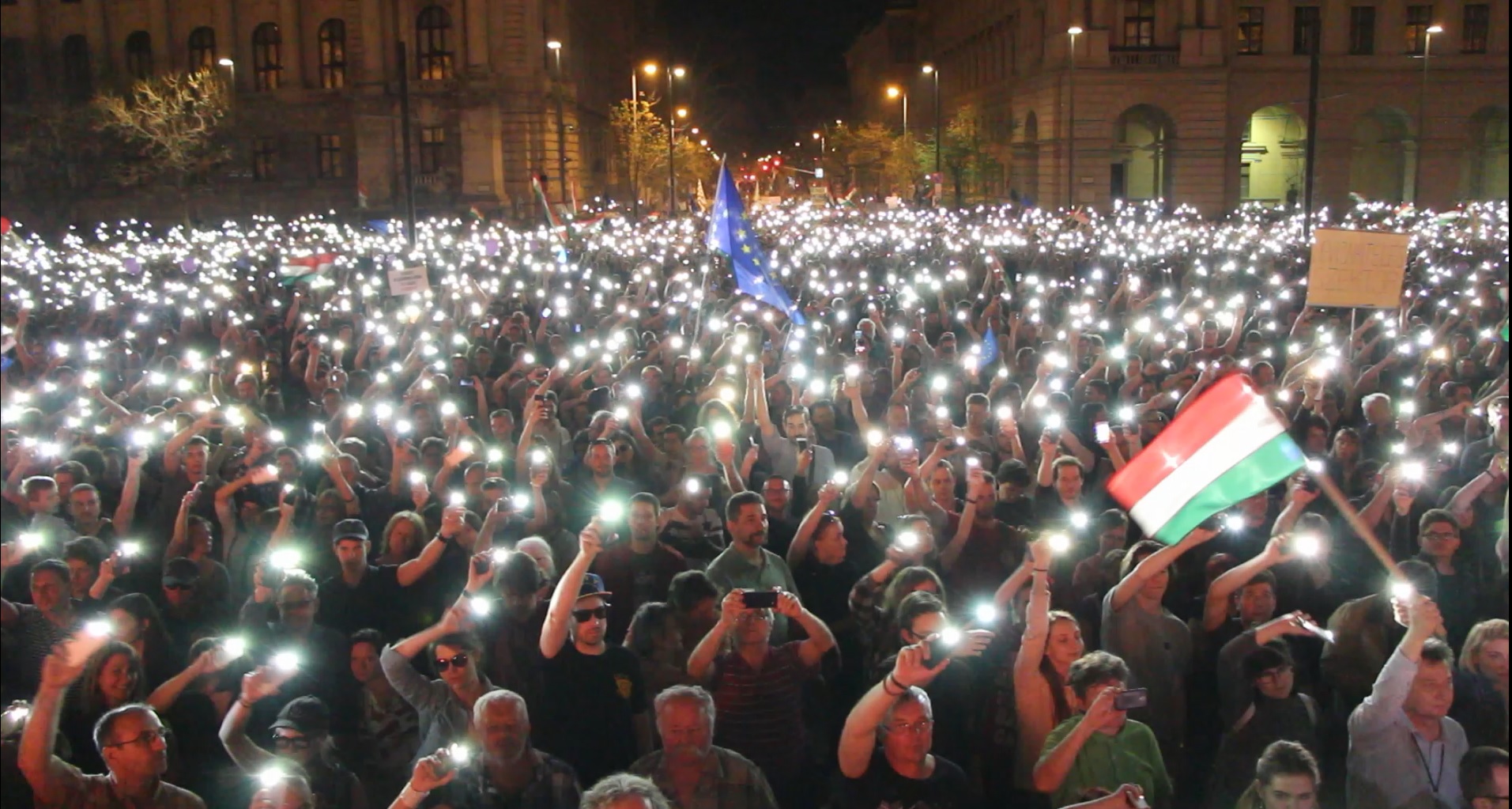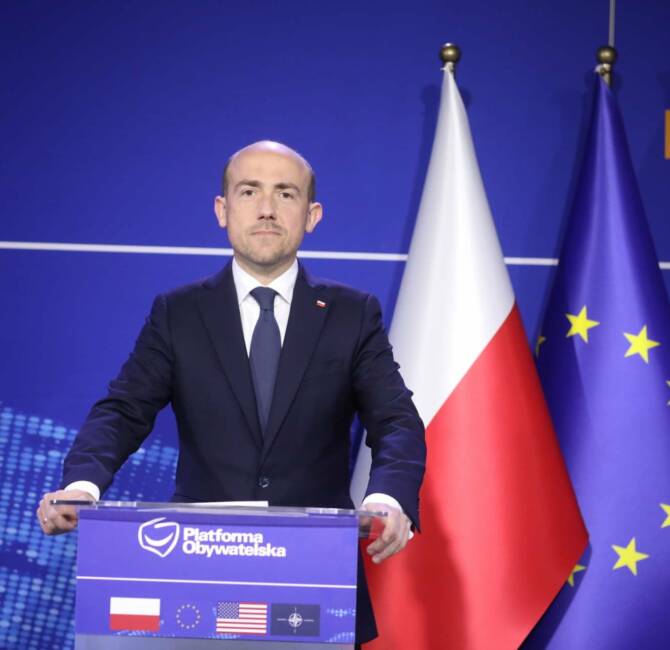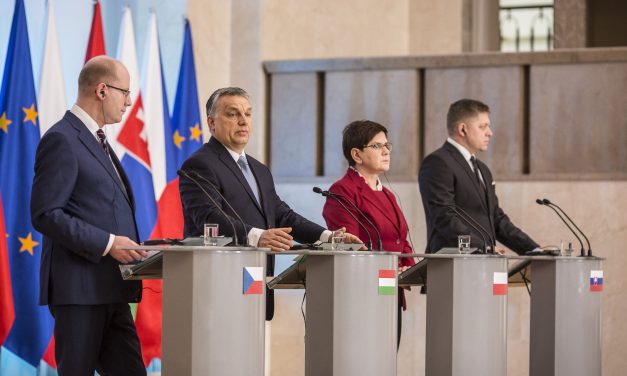By Modeste Schwartz.
Hungary – Analysis of the electoral results of April 8, which gave Viktor Orbán’s Fidesz a third consecutive mandate.
Why rejoice?
Let’s start with a cynical statement: the FIDESZ strategists have earned their fees. They are obviously based on the principle (confirmed by the facts of April 8) that the party can count on the almost unconditional support of its core and that its largely positive balance sheet also guarantees it support from a less politicized, less enthusiastic, but loyalist fringe: the analysis by age group shows that those over the age of 30 vote for FIDESZ more than the under-30s – usually married, parents or planning to become such, they tend to analyse more objectively their concrete material situation. The purpose of the campaign was therefore to compensate for any widening of the opposition’s electoral base (which ultimately did not take place – but Messrs. Soros and Simicska did everything to make it happen) by mobilizing segments whose political culture borders on nothingness. To achieve this, they made the risky gamble of neglecting potentially buoyant themes (such as the excellent balance sheet of the two mandates – especially when compared to before 2010) for investing in heavy artillery, a repetitive and often oversimplified civilizational argument (the limits of which we have noted here). In doing so, while appearing to speculate on “the stupidity of the Hungarians”, they have, paradoxically, bet on the intelligence of their hard core and realistic fringe, who have not only learned the lessons of 20 years, but – moreover – “forgive” FIDESZ the stylistic “smudges” of its campaign rhetoric. Compared to the French, that effective media engineering led, less than a year ago, to bring to power a man enjoying the real support of one in ten French people, the Hungarians have brilliantly passed this electoral test, during which they demonstrated their intelligence and their political maturity.
And, to keep stating the obvious: with participation figures unmatched for more than 15 years, the elections of last Sunday were a democratic exercise so exemplary that one can wonder if the opposition is not going, in the future, to choose as in Russia to bet rather on the sabotage of the polls, calling for abstention in the hope – always answered by the complicit Western press – to confiscate the absentees’ vote. Infantile and autistic, the first reactions of the losers of April 8 point in this direction: they speak in veiled terms of electoral fraud, even though the only incident they are able to report is that of a polling station for resident students away from their official home, where a queue has, after closure of other offices, delayed by a few hours the start of the count and the announcement of the first results – but without a single voter present being prevented (even after the hour) from casting their ballot! It is also this kind of scorched-earth strategy that the interview given on April 10 by the unofficial campaign director of the ghost coalition who was in charge of debunking Orbán: Márton Gulyás (of which we have already spoken here). Concretely, the Russian example suggests that the adoption of such a strategy is the “civil society” equivalent of conflict-freezing: judging the offensive impossible, the aggressor maintains a minimal presence on the borders of the aggressed, hoping for better days bringing an opportunity for reactivation.
However, in these plebiscitary conditions, FIDESZ has added 500,000 voters to the 2,100,000 who had already voted for them in 2014, while the other parties are on the spot – so that it is also intellectually dishonest to incriminate the Hungarian electoral system (a one-round election – which is quite common in Europe), which certainly increased the FIDESZ parliamentary majority, but did not create it. With so many votes, Viktor Orbán would remain in power in all the democratic states of the world, and the protest anti-democratic demonstration of yesterday gathering only a few tens of thousands: those 10,000 activists and supporters (out of a population of 10 million Hungarians) on whom, in all, the globalist camp in Budapest can always count (by the admission of one of the worst anti-Orbán propaganda products of French television), plus a urban Jobbik crew of smaller size. Ite missa est!
Let us point out from the outset the main advantage of this super-majority: in the event of a major international crisis (including in the event of a deep restructuring and/or implosion of the EU) during the mandate it just inaugurated, Viktor Orbán will be – more than any other leader in the region – certain of his legitimacy when he will speak and negotiate on behalf of Hungary.

Why worry?
In addition to the predictable victory, the divine surprise of the recaptured two-thirds majority places in the hands of FIDESZ a political capital practically unmatched in the EU member states. It remains to be seen whether it will make the best use of it. The analysis of the mandates and campaigns of this now fully professionalized party certainly gives rise to optimism. Nevertheless, it may be useful to review some of the pitfalls it will find on the road to 2022.
First of all, it is to be hoped that the party leadership – which Orbán seems to want to partially renew, and especially to rejuvenate – is well aware of the fact that its basis has at least changed as much as it has expanded. The anonymity of the vote of course makes impossible any precise quantification of the phenomenon, but the abundance of individual testimonies leaves no doubt as to the fact that:
1) Many voters of the “old Jobbik” (before the “liberal-conservative” turn of the Europhile Vona weather vane, now retired as we had foreseen) are now FIDESZ voters; after being very discreet throughout the campaign, Jobbik’s No. 2, László Toroczkai, is obviously seeking to take the reins, in order to reverse the suicidal turnaround that Gábor Vona took over more-or-less two years ago. Even supposing that it succeeds, the recapturing of the disappointed voters promises to be difficult. And, assuming the latter also succeeds, it will probably involve the upcoming defection of many of those who have just joined the party because of its recent “left turn”.
2) Given the fact that the base of Jobbik in 2014 was just over one million voters, even assuming that the desertion rate to FIDESZ is only 25%, we come to the conclusion that, discounting disappointed Jobbik voters, FIDESZ has won “only” 250,000 new voters – which would be a rather modest result in view of its huge war effort of the last few months in order to re-politicize Hungarian society even in the more isolated villages. In fact, it is much more reasonable to assume that FIDESZ did win many more new voters (explaining the participation record), while also siphoning off the “old Jobbik” – but this plausible explanation forces us to admit that it has also lost voters: maybe between 50,000 and 200,000, i.e. up to 10% of its former base – that is, more than one would expect simply on the basis of “power fatigue”.
3) Who are these deserters? Despite the suspicious recriminations of the pro-FIDESZ press, anxious to counter the opposition’s accusation that “FIDESZ split the country”, it is likely that this is primarily an urban audience, educated and Westernist: of this “anti-totalitarian intellectual” base which was the very spearhead of FIDESZ during the 1990s. Thus, the right-wing liberal Gábor Sebes, member of FIDESZ, while pretending to congratulate the victory, gives Viktor Orbán the kiss of Judas under the form of a Facebook status taking up all the “anti-corruption” arguments of the liberal left, and reminding FIDESZ how “fair competition is a central value in America”. Let’s bet that Viktor Orbán (who is still waiting for Donald Trump to congratulate him as he congratulated “the Donald” a year and a half ago) must have appreciated this advice. The opposition is certainly wrong to specifically accuse FIDESZ, but the Budapest/province split is real – and does not date from 1990 or even 1948 or 1918.
4) Add to this what the Hungarian right-wing press is careful not to mention: the marginal transfers that mathematically had to take place in 2010 from the electoral base of the Hungarian Socialist Party (MSZP), now dying, but which largely dominated the landscape until the mid-2000s. The transfers are perfectly logical, given that since 2010, FIDESZ, despite its strong anti-Communist rhetoric, has been reverse-engineering (particularly in terms of infrastructure, pensions, privatization) many of the liberal innovations of the 1990s, a policy which could only satisfy those who previously remained faithful to the MSZP not by Marxist ideology, but by class interest. In the midst of the heavy silence of the press on both sides, there was a gradual split of the Hungarian left: those who regretted the relative well-being of the Kádár years rather than the communist ideology itself, and have therefore been able to ignore the FIDESZ’ anti-Communist rhetoric, joined its ranks; the rest have resigned themselves to having to vote automatically for an MSZP that has become a Western-styled liberal-libertarian party, which no longer represents their class interests or even their class culture (the latter being quite far from the “no border” and LGBT ideologies). The only opposition candidate who congratulated his luckiest rival in the person of Viktor Orbán is, by the way, Gyula Thürmer, leader of the tiny Workers’ Party, who is the last political representative of the Hungarian labour movement, and the only opposition party which does not seem to be in the pay of foreigners.
5) By putting this discreet socialist reinforcement together with that of the “old Jobbik”, in the context of a return to the century old trend of Budapest/province antagonism, we understand that FIDESZ is today a party of former right-wing liberals elected by a base whose most politicized layer is now composed of anti-liberals (from the right, but also from the left).
Viktor Orbán seems to have planned and accompanied this evolution in time by launching his concept of “illiberal democracy”. Can we say the same about his party? Nothing is less sure. Sheltered by a civilizational campaign rhetoric that erased divergences of interest between the continent’s West and East, FIDESZ elites have so far been able to afford the luxury of circumventing the contentious issues. They will not be able to do this forever. As for the FIDESZ press, sailing between two waters, it more and more often designates the enemy as “liberal”, but generally using – in the American way – this word as synonymous with “left”, thus pretending to ignore the existence within the party and the regime of a right-wing liberal wing that remains faithful to FIDESZ only to stay in power. Eventually, with the wear and tear of power, FIDESZ could one day end up in the situation that is today that of Jobbik (by reversing the order of appearance of conflicting inner trends) – and expose itself to the same risk of paralysis by reciprocal neutralization.
What also contributes to relativize the scope of this victory is that Viktor Orbán has, so to speak, conquered without fighting against an opposition of an abyssal intellectual and moral level. To tell the truth, even if he had not been able, over the past eight years, to protect Hungarians from the rapacity of industrial and banking monopolies, even without increasing wages, even without support for families, and even if half the “crimes” for which he was reproached by Western propaganda was anything else than slander, one wonders how a politician of Viktor Orbán’s scale and intelligence could possibly lose in the face of an opposition that only sectarian inertia and a steadfast foreign support keeps somehow on life-support. Directed by the son of an American preacher of Hungarian origin for a publication funded by the West, this small series of interviews with the leaders of said opposition hardly requires any comment: despite their extreme dispersion (these few speakers represent half a dozen movements, parties and NGOs), these “opponents” produce a uniform and pre-formatted speech, so devoid of content that it becomes practically useless to contradict it: the terms “authoritarian” and “illiberal” are repeated without ever being defined, and the omnipresent accusation of the theft of public funds (obsessively associated with the theme of European funds – even though anyone who has in his life filled out a grant application knows full well that they are subject to a control stricter than the national funds) reigns like a background noise without ever relying on any concrete examples (and for good reason: in the absence of any evidence, slander – still tolerable in this vague form – would soon become qualifiable under the terms of criminal law); as for the social phenomena evoked to paint an apocalyptic image of present-day Hungary (like the exodus of doctors – which, by the way has slowed down lately), they affect all the post-communist countries (including and especially Romania, a country exemplarily submissive to the dictates of Brussels and Washington), generally more seriously than Hungary. In reality, this opposition that has nothing to say has even given up the illusion of having an audience for its verbal diarrhoea, and seeks first and foremost to lavish on its Western sponsors evidence of a meritorious and remunerable activity: not only is the abovementioned video subtitled in English, but one of the speakers (although herself Hungarian and speaking to another Hungarian) even answered directly in English (is this Freudian?).
Is this a good reason to rejoice? No. Because with the discredit that now also strikes Jobbik, FIDESZ is left to governs de facto without opposition: legally because of its overwhelming majority in parliament, but also and especially morally, for lack of interlocutors worthy of attention. Under such conditions, for a FIDESZ where all executives do not have the extraordinary moral energy of Viktor Orbán, and who, in eight years of power, has inevitably attracted the interested adhesion of many opportunists with little concern for the general interest, the temptation to fall asleep on its laurels becomes immense – just as the crisis in the EU is worsening and the fallout of a possible international financial crisis could put a strain on this little and economically fragile country.
It should be noted in passing that the international “benefactors” who de facto control the Hungarian pseudo-opposition bear a certain responsibility in the process of counter-selection which led to the currently observable idiocratic situation: let us mention, for example, the very unclear conditions in which, at the head of the eco-centrist LMP party, the talented András Schiffer was replaced by the globalist generic product named Bernadett Szél. Or the inexplicable political longevity of the most hated man in Hungary: the oligarch Ferenc Gyurcsány, a veritable ball-and-chain of the Hungarian left, shamefully rejected by the electorate in 2009-2010 after being caught red-handed by the EU itself in the act of making up the public accounts of Hungary; in spite of growingly bizarre public appearances explained by many commentators as the consequences of alcoholism, he is the only leader of the opposition who did not announce his withdrawal after Sunday night’s vote – even causing many gossips to wonder if he had not a secret agreement with FIDESZ to permanently discredit the Hungarian left.

FIDESZ, a victim of its success?
Those who turn an election into a referendum are exposed to two major risks. The main risk is of course to lose the referendum, and power at the same time. The next risk in order of harmfulness is to gain it and to make oneself ipso facto expendable. After this Hungary’s disavowal (which, thanks to Visegrad, takes on a regional dimension) of the EU’s migration policy, in a rejuvenated and technocratised European political landscape (Macron, Kurz, et. al), we cannot exclude the emergence of a “moderate globalist” transition doctrine, choosing to sacrifice the leftist ideal of “no border” to “save the ship” of Brussels. Thus deprived of its “silver bullet”, FIDESZ, to continue, could then no longer count – at least in terms of image –on anything but the nullity of its opposition – which might become remediable if FIDESZ does not develop a more ambitious policy, capable of protecting Hungary from more insidious – though no less real – dangers than the migratory threat.
Some of the social themes agitated by the left-wing opposition refer to some real ills of Hungarian society (we have mentioned a few here). Starting with the emigration of young people, often presented by these Europhile mourners as a political exile, and which in reality depends, in the vast majority of cases, on economic motivations. Will a discredited opposition – naturally unable to propose viable solutions to problems largely created by itself and/or its international sponsors – suffice ad aeternam to excuse, in the eyes of the electorate, the relative impotence of FIDESZ in this matter? It would probably be illusory, and in any case cowardly to hope for it. But this is an understandable cowardice, given the difficulty of the task, whose potential costs (financial and political) far exceed those of the erection of a barbed-wire fence at the Serbian border. In order to improve the purchasing power of its popular strata, in the European straitjacket it continues to accept, Hungary has neither the monetary weapon (the forint being, like all the other non-euro currencies of the EU, a monetary Bantustan under the tyranny of an “independent” central bank), nor the protectionist option (for WTO and EU reasons – not to mention its dependence on German capital). Courted by the Silk Road, it would nevertheless be, given its low financial wings and its almost non-existing military power, very audacious to try to run away alone. Improvement thus presupposes, first of all, a conservation of existing structures, but accompanied by a harsh renegotiation of the terms of trade with Western (primarily German) capital. Therefore, the path of economic emancipation also passes through Visegrad, which (of course without giving up anti-immigration) must, to justify its long-term existence, become more than an anti-immigration and anti-gay pride union totally subservient to NATO. However, judging by the precedents – starting with the migration crisis of 2015 – this will only happen if Viktor Orbán, as the now fully crowned regional leader, takes the lead of the crusade – which promises further assaults of the magyarophobic media blitz in the West, and a busy order book for the paid slanderers at CNN, BBC, ZDF and other M6.
A courageous choice indeed, but a necessary one in my opinion, given the lack of a long-term alternative. Indeed, even if the pro-government press rightly insists that, last Sunday, FIDESZ won a majority in each age group, the fact remains that, compared to that of its most innovative opponent, Momentum (a kind of Hungarian replica of En Marche), the FIDESZ electorate presents a nearly inverted age pyramid, particularly marked by relatively small numbers in the youngest age bracket. These voters, many of whom were not born at the time of the fall of communism, can at most remember – as a foil – the Gyurcsány years (two periods that have, however, almost nothing in common except for a certain degree of dynastic continuity in the ranks of ex-communist apparatchiks converted to neo-liberalism); for them, “the system” is FIDESZ – hence its better results in the female electorate, structurally more inclined to accept existing hierarchies. FIDESZ cannot decently endure more than ten years in power and keep reproducing a rhetoric of rebellion – at the risk of eventually promoting, without realizing it, an alternative (like Momentum) likely to embody better than they this ideal – an outdated baby-boomer ideal preserved only by discourse inertia. Very intuitive and well advised, Viktor Orbán seems to be aware of this: in his historic speech of March 15, the strong man of Budapest, who is now 54 years old, adopted for the first time the tone of a grandfather to address the Hungarian youth. To escape the eternal return of coloured revolutions, it is not enough to grow old: one must also explicitly renounce youthism.




